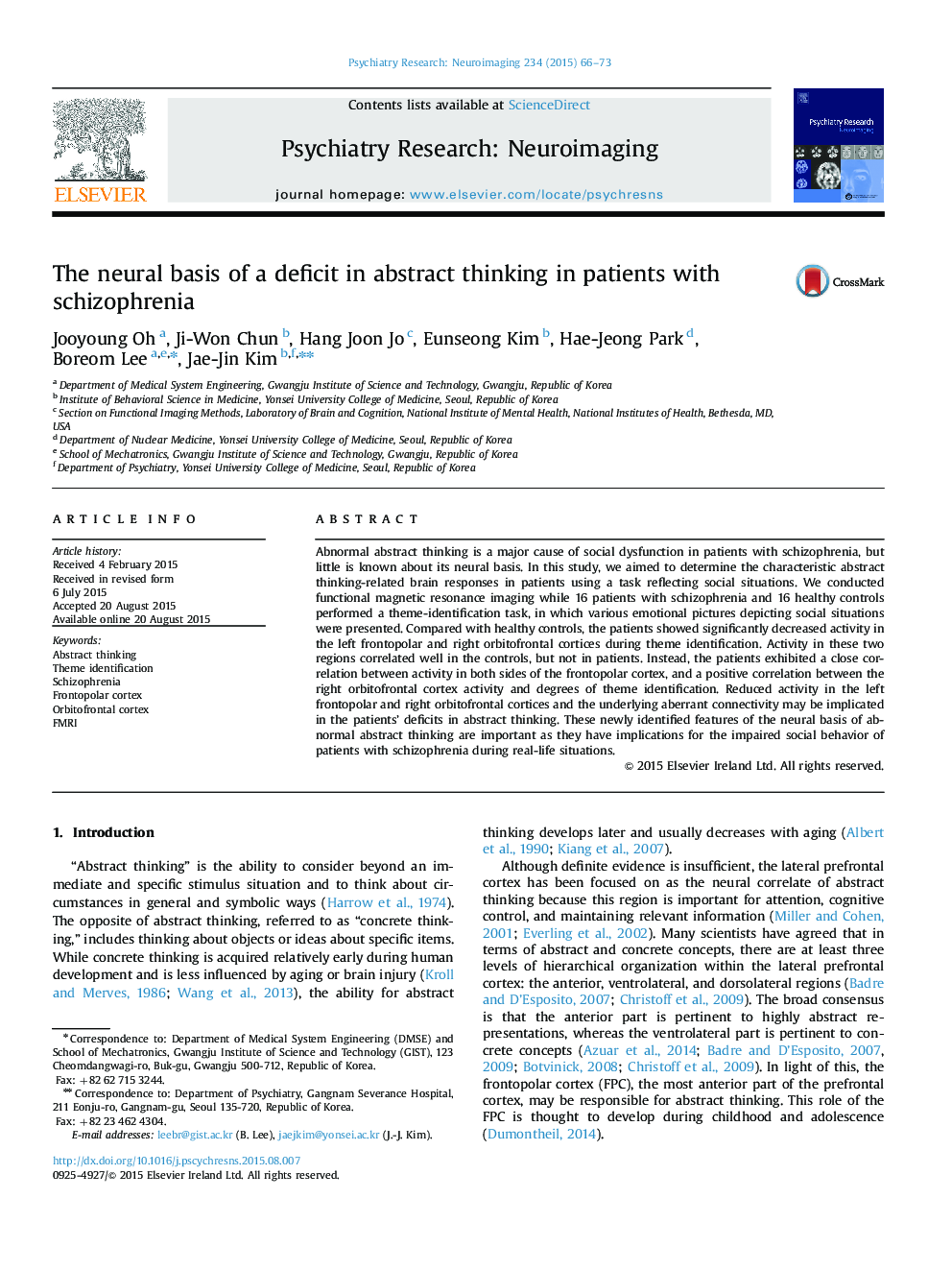| Article ID | Journal | Published Year | Pages | File Type |
|---|---|---|---|---|
| 335263 | Psychiatry Research: Neuroimaging | 2015 | 8 Pages |
•Comparing patients with schizophrenia and healthy controls using fMRI.•Subjects performed a theme-identification task: a task reflecting social situations.•The characteristic abstract thinking-related brain responses of patients were found.•Reduced activity was shown in the left frontopolar and right orbitofrontal cortices.
Abnormal abstract thinking is a major cause of social dysfunction in patients with schizophrenia, but little is known about its neural basis. In this study, we aimed to determine the characteristic abstract thinking-related brain responses in patients using a task reflecting social situations. We conducted functional magnetic resonance imaging while 16 patients with schizophrenia and 16 healthy controls performed a theme-identification task, in which various emotional pictures depicting social situations were presented. Compared with healthy controls, the patients showed significantly decreased activity in the left frontopolar and right orbitofrontal cortices during theme identification. Activity in these two regions correlated well in the controls, but not in patients. Instead, the patients exhibited a close correlation between activity in both sides of the frontopolar cortex, and a positive correlation between the right orbitofrontal cortex activity and degrees of theme identification. Reduced activity in the left frontopolar and right orbitofrontal cortices and the underlying aberrant connectivity may be implicated in the patients’ deficits in abstract thinking. These newly identified features of the neural basis of abnormal abstract thinking are important as they have implications for the impaired social behavior of patients with schizophrenia during real-life situations.
